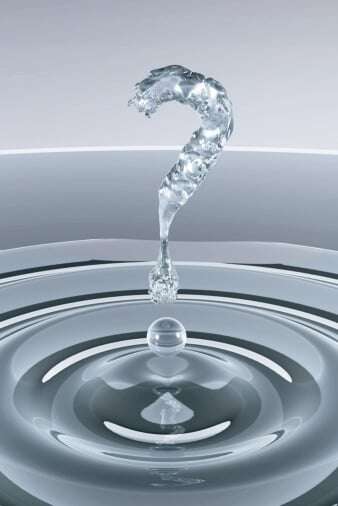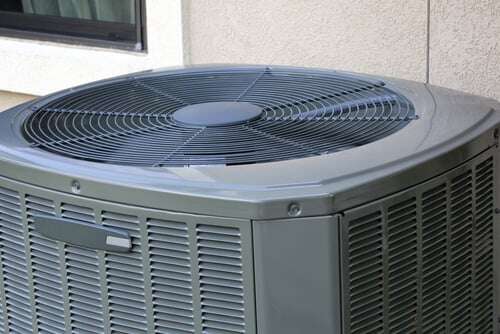 You've probably noticed how it's usually easy for someone else to say “Don't panic” when it is you who is going through a home emergency. Still, if you notice a puddle near your outdoor air conditioning unit, the steadying advice is actually spot-on.
You've probably noticed how it's usually easy for someone else to say “Don't panic” when it is you who is going through a home emergency. Still, if you notice a puddle near your outdoor air conditioning unit, the steadying advice is actually spot-on.
Yes, there might be a problem with your air conditioner that will require a repair. But try to look at the situation this way: one, at least you noticed the puddle before it grew to the size of a pond and two, our Experts have confronted this scenario hundreds of times before and know exactly how to troubleshoot the problem.
Water buildup stems from moisture
When you think about the very nature of air conditioning, and how it works, discovering water near your outdoor unit is hardly surprising – hence the “don't panic” advice. In fact, it's very much like the puddle of water you might spot on your driveway, underneath your car, after you've run the air conditioner and turned off the engine.
It might help to back up to square one and remember that your central air conditioning system functions by removing heat, and not just pumping cool air, to make your home cooler. The cooling process begins when your outdoor compressor pumps refrigerant through your system to gather moisture and heat from inside your home.
This combination of moisture and heat then blows over the cooled indoor coil, where a literal exchange takes place: the warm air is pumped outside your home while the cooled air is pumped back indoors, through your ducts, to create a cooler indoor temperature – at a level you determine on your thermostat.
During this exchange, moisture in the air condenses on the coil and drips into the condensate pan underneath it. This water is directed outdoors through a drain line. So if you notice a puddle near your outdoor unit, some probable causes include:
A clog is the most likely culprit
- A blocked drain line. Dirt, mold, algae and bacteria are the most common obstacles. Some homeowners feel confident to remove large visible obstructions and even flush out the drain line with a little chlorine bleach. But don't yield anything more powerful than a wooden craft stick or skewer; sometimes homeowners try to come to the rescue and try to drill holes (yes, holes) into their air conditioner to solve a puddling problem. Unwittingly, they create a bigger, more expensive problem.
- A crack in the condensate pan or drain line. Some cracks are so small that they defy visual detection.
- Air leakage. If the seals on your outdoor unit are not tight, warm outdoor air can sneak inside, converge with cool air and form condensation and excess moisture. Experts In Your Home can reseal your outdoor unit so that it is impervious to outdoor air.
- Cool outdoor temperatures, which can sneak up on all of us in northern California. It's most common when you continue to run your air conditioner even when the outdoor temperature has dropped significantly. Water that would normally evaporate around the outdoor unit does not do so because of the cooler temperature. If it's very cold outside, the water might even turn to ice. This is one problem that might “solve itself” once the outdoor temperature rises or you turn off your air conditioning.
- Improper installation. Experts In Your Home doesn't see this often, but every once in a while a unit that has been placed on an uneven surface can leak water. Even then, we revert to the “don't panic” mantra, for this problem can be remedied, too.
Annual maintenance is vital
If you suspect that all roads lead back to the importance of an annual air conditioning system tune-up, you're already one step ahead. Inspecting the condensate drain is just one of the tasks on our “tune-up checklist” to ensure that your air conditioner runs at peak efficiency.
And preventive maintenance is almost always more economical than making a mechanical repair because we're able to spot and fix a minor problem with your air conditioner before you have a bigger, more expensive problem on your hands.
In addition to checking for clogs and cracks in your condensate drain line, Experts In Your Home follows the U.S. Department of Energy's maintenance recommendations and:
- Checks the thermostat settings and controls
- Tightens the electrical connections and measures the voltage and current on the motors
- Lubricates all moving parts
- Cleans the evaporator and condenser coils
- Cleans and adjusts the blower components
- Checks the refrigerant level
Whether you spot a puddle near your air conditioner or wish to prevent one from forming in the first place, contact Experts In Your Home. Our air conditioning repair technicians serve Chico & surrounding areas. We promise to be a calming influence – no matter what's going on around you and your air conditioner.








